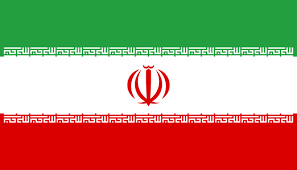Difference between revisions of "Language/Iranian-persian/Culture/Communicate"
< Language | Iranian-persian | Culture
Jump to navigation
Jump to search
Mostafa2220 (talk | contribs) (یکی از ویژگی های فرهنگ ایرانی اضافه شد) |
m (Quick edit) |
||
| (2 intermediate revisions by 2 users not shown) | |||
| Line 1: | Line 1: | ||
[[File:Persian-Language-PolyglotClub.png|thumb]] | |||
'''Taarof behavior''' | |||
One of the characteristics of communication in Iranian culture is that it lacks clarity and transparency. | |||
For example, the host wants you to eat the food he has prepared. First you refuse to do it and the host insists again; | |||
The host insists on not being known as a miserly person | The host insists and you refuse. | ||
This is called Taarof behavior. | |||
The host insists on not being known as a miserly person. | |||
You refuse to be recognized as someone who eats a lot of food (Eating too much in Iranian culture is bad). | |||
<span link>Take a moment to explore these relevant pages as you conclude this lesson:</span> [[Language/Iranian-persian/Culture/The-Practice-of-Taarof-in-Iran|The Practice of Taarof in Iran]], [[Language/Iranian-persian/Culture/Castles|Castles]], [[Language/Iranian-persian/Culture/Lesson-24:-Modern-history-and-contemporary-issues|Lesson 24: Modern history and contemporary issues]] & [[Language/Iranian-persian/Culture/Lesson-23:-Persian-civilization-and-ancient-history|Lesson 23: Persian civilization and ancient history]]. | |||
==Other Lessons== | |||
* [[Language/Iranian-persian/Culture/Iranian-calendar|Iranian calendar]] | |||
* [[Language/Iranian-persian/Culture/Castles|Castles]] | |||
* [[Language/Iranian-persian/Culture/Nowruz|Nowruz]] | |||
* [[Language/Iranian-persian/Culture/Ramadan|Ramadan]] | |||
* [[Language/Iranian-persian/Culture/The-Bakhtiari|The Bakhtiari]] | |||
* [[Language/Iranian-persian/Culture/Transportation|Transportation]] | |||
* [[Language/Iranian-persian/Culture/New-year|New year]] | |||
* [[Language/Iranian-persian/Culture/Sizdahbedar|Sizdahbedar]] | |||
* [[Language/Iranian-persian/Culture/Official-Farsi-and-informal-Farsi|Official Farsi and informal Farsi]] | |||
* [[Language/Iranian-persian/Culture/Iran-Timeline|Iran Timeline]] | |||
<span links></span> | |||
Latest revision as of 23:24, 26 March 2023
Taarof behavior
One of the characteristics of communication in Iranian culture is that it lacks clarity and transparency.
For example, the host wants you to eat the food he has prepared. First you refuse to do it and the host insists again;
The host insists and you refuse.
This is called Taarof behavior.
The host insists on not being known as a miserly person.
You refuse to be recognized as someone who eats a lot of food (Eating too much in Iranian culture is bad).
Take a moment to explore these relevant pages as you conclude this lesson: The Practice of Taarof in Iran, Castles, Lesson 24: Modern history and contemporary issues & Lesson 23: Persian civilization and ancient history.
Other Lessons[edit | edit source]
- Iranian calendar
- Castles
- Nowruz
- Ramadan
- The Bakhtiari
- Transportation
- New year
- Sizdahbedar
- Official Farsi and informal Farsi
- Iran Timeline
